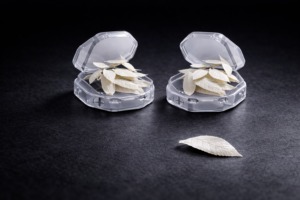Sports and physical activities are integral parts of an active lifestyle, but they also come with their share of risks. Among these risks, dental injuries are a common concern for athletes. Whether it’s a collision on the field or an accidental impact during a game, dental emergencies can cause significant pain and require immediate attention. This article explores how to manage dental emergencies for athletes and offers tips for preventing such injuries, particularly for those with poor oral health.
Understanding Dental Emergencies in Sports
Dental emergencies in sports typically involve injuries to the teeth, gums, or surrounding tissues. Common dental emergencies include knocked-out teeth, fractured teeth, and soft tissue injuries like lacerations to the gums or cheeks. These injuries can occur in any sport but are particularly prevalent in contact sports such as football, hockey, and martial arts.
When a dental emergency occurs, it’s crucial to act quickly to minimize damage and ensure the best possible outcome. Immediate treatment can prevent further complications and increase the chances of saving a tooth or reducing pain.
Immediate Actions for Dental Emergencies
1. Knocked-Out Tooth:
If an athlete’s tooth is knocked out, the first step is to handle the tooth carefully. Rinse it gently with water if it is dirty, but avoid scrubbing or using soap. Try to reinsert the tooth into its socket, holding it by the crown (the top part). If reinsertion isn’t possible, place the tooth in a container with milk or a saline solution. Seek emergency dental care immediately. Time is critical, and a tooth can often be saved if reimplanted within an hour.
2. Fractured Tooth:
For a fractured tooth, rinse the mouth with warm water to clean the area. Apply a cold compress to reduce swelling and manage pain. Save any broken pieces of the tooth and bring them to the dentist. In the meantime, avoid chewing on the affected side and visit a dentist as soon as possible to determine the best course of action for repair or restoration.
3. Soft Tissue Injuries:
Lacerations to the gums, lips, or cheeks should be cleaned gently with water. Apply gentle pressure with a clean cloth to stop bleeding. If swelling occurs, use a cold compress. If the bleeding is severe or doesn’t stop, or if the injury involves a large area, seek immediate dental care.
Preventing Dental Injuries in Sports
Preventing dental injuries is key to maintaining good oral health and avoiding emergency situations. Here are some strategies to reduce the risk of dental injuries:
1. Wear Protective Gear:
The most effective way to prevent dental injuries is to use appropriate protective gear. Mouthguards are essential for athletes participating in contact sports. Custom-fitted mouthguards offer superior protection compared to over-the-counter versions and can help cushion impacts to the teeth and gums. Even in non-contact sports, a mouthguard can be beneficial for preventing accidental injuries.
2. Maintain Good Oral Hygiene:
Athletes with poor oral health are at a higher risk for dental issues, including injuries. Poor oral hygiene can lead to weakened teeth and gums, making them more susceptible to damage. Regular brushing, flossing, and routine dental check-ups are crucial. Athletes should also be mindful of their diet, as consuming sugary or acidic foods can compromise dental health.
3. Educate on Proper Techniques:
Training and education play a significant role in preventing injuries. Athletes should be taught proper techniques and body positioning to minimize the risk of impact-related injuries. Coaches and trainers should emphasize the importance of using protective gear and following safety protocols.
4. Routine Dental Visits:
Regular dental visits are essential for detecting potential issues before they become serious problems. Dentists can identify signs of wear, decay, or other conditions that might make an athlete more vulnerable to dental injuries. Routine cleanings and exams also help ensure that teeth and gums are in optimal condition.
5. Addressing Existing Oral Health Issues:
Athletes with poor oral health should seek treatment for any existing issues. Untreated cavities, gum disease, or other dental problems can exacerbate the risk of injury. Addressing these issues proactively can enhance overall dental resilience and reduce the likelihood of emergency situations.
Dental emergencies are a significant concern for athletes, particularly those involved in contact sports. Prompt and effective treatment can make a crucial difference in the outcome of a dental injury. By taking preventive measures, such as wearing appropriate protective gear and maintaining good oral hygiene, athletes can significantly reduce their risk of dental injuries. For those with poor oral health, addressing existing issues and seeking regular dental care is essential for minimizing the risk of emergency situations.
Overall, the key to managing and preventing dental injuries in sports is a combination of immediate response and proactive care. By staying informed and prepared, athletes can enjoy their sports while keeping their dental health in check.
Emergency Dentistry for Athletes: How to Treat and Prevent Dental Injuries in Sports




